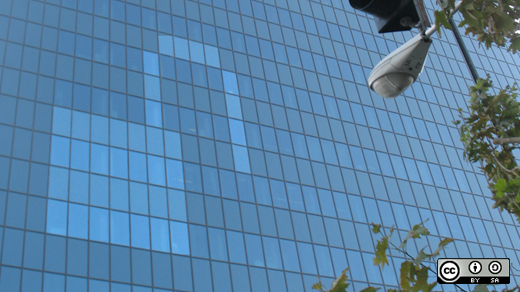Elon Musk and crew at Tesla Motors made some big waves last week. In case you missed this recent news roundup, it was announced that Tesla is effectively relinquishing their patent portfolio—particularly around charging stations.
Considering the waves Tesla has already made in the automotive industry, what with their forgoing of all things dealer and the obvious gas for battery switch, this may not come as a surprise. That being said considering the industry they play in it's certainly a fundamental shift in the automotive. I couldn't imagine GM or Ford doing the same.
With that in mind it should come as no surprise that Tesla has garned their share of rabid supporters and detractors alike. And thanks to the comments section of news sites (like ours!) we get to hear unfiltered responses from both fans and haters. The most common statement in the negative is that this is not an "altruistic" move. The argument is centered around the fact that many believe Tesla is trying to corner the charging station market such that their technology becomes the standard, thus guaranteeing that Tesla has a leg up in the electric car market.
When I started reading these arguments about a lack of altruism and the fact that this is actually shady it reminded me very much of the rumblings I heard when it came to light a Microsoft employee was the single largest contributor to the Linux kernel for the 3.0 release. It was a weird moment for many open source zealots. The company that at one point called Linux a cancer was, less than a decade later, contributing large amounts of code to the heart of Linux. Many befuddled readers and pundits started to cry out that Microsoft couldn't care less about open source. Microsoft was simply improving how well HyperV, Linux and Windows played together which is a boon to Microsoft.
That's definitely true. It is more than likely that Microsoft contributed code to the Linux kernel primarily because it benefitted them. But hasn't that been one of the fundamental arguments as to why open source is better? If it's not working for you, fix it. If you work out in the open, others can also improve it which further benefits you. What's good for the goose is good for the gander so to speak.
So I would argue that yes, Tesla is probably not just doing this simply because Tesla just wants to change the world in a pure and altruistic way. They are a business and to them it is a very wise move to push their technology further. If this means sharing your work with the world to achieve that goal, well that's the path you take. Is this wrong? In other words, would it have been better if Tesla had kept their patents guarded and litigated anytime someone copied them?
Personally I would love to see more companies realize this benefit of opening up your secrets. Sharing with the world is a great thing and, when leveraged properly, you can share and be selfish at the same time to the benefit of all involved.
So what do you think? Is Tesla simply using this as a business move? Is there a problem with money and leadership status being the motivating factors behind transparency? Let us know in the comments section.






3 Comments